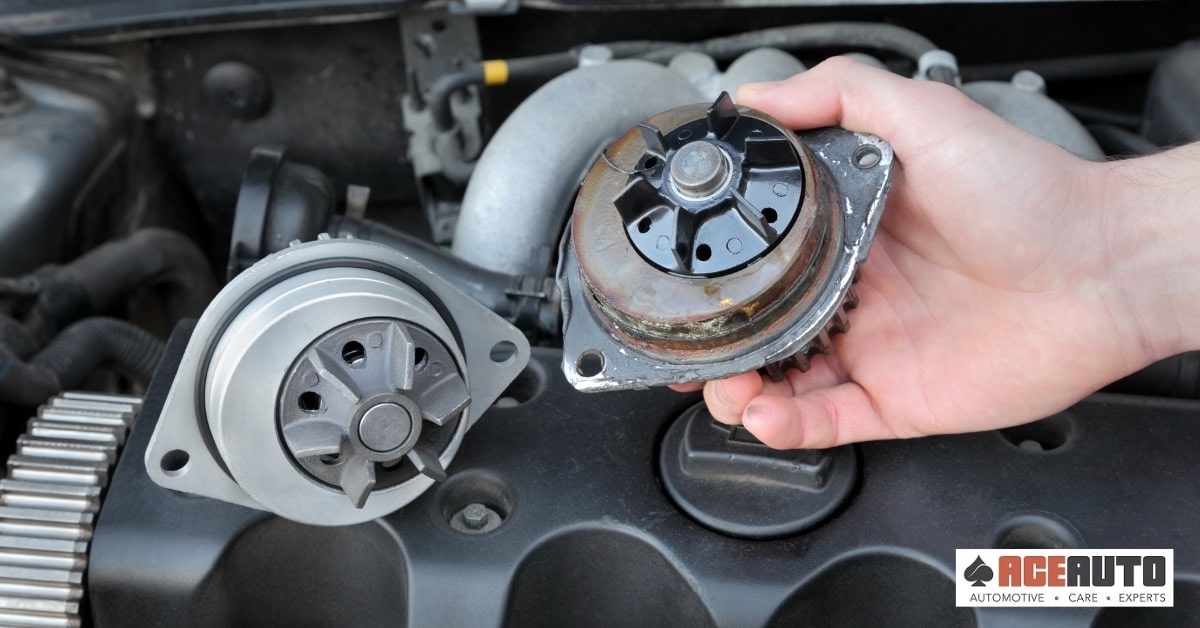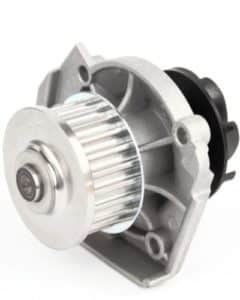Transmission Repair Specialists in West Jordan, Utah
Is your vehicle experiencing transmission troubles? We're transmission repair geniuses! We guarantee we can fix your transmission and get you up and running in no time.
READ MORE -
Every vehicle must have a properly functioning water pump in order for the engine to operate. The water pump drives coolant through the radiator and sends it circulating through the engine. When it malfunctions, an immediate water pump car repair becomes necessary to get your vehicle back in drivable condition.
The water pump is responsible for maintaining engine and radiator temperatures within the acceptable range. To keep your car in reliable and safe operating condition, you need to take care of any maintenance matters your water pump requires as need arises.
There are numerous approaches to identifying water pump problems. For example, you may want to listen for unusual sounds coming from the pump, examine the belt and pulley, and check the thermostat. If the water temperature warning light is on, it may indicate that the coolant circulation in your car is insufficient, which may mean you need a water pump replacement. Or, one of a number of other checks may get you closer to discovering a problem with the pump.
Here are some of the most common problems that cause issues with water pumps, to help you in troubleshooting diagnosis of your water pump issue, and in deciding whether you may need automobile water pump repair:
Look for signs of coolant leaking. Check under the front area of your vehicle. Look for any puddling of red, orange, or green fluid. Leaking coolant is often due to issues involving the water pump.
The water pump’s purpose is to circulate coolant in the vehicle’s engine block and heads. When a water pump breaks down, it can no longer circulate engine coolant as it’s designed to do. When the coolant is not circulating as necessary to keep the engine cool, the temperature in the engine rises to an extreme degree, and the engine becomes overheated. An overheated engine is an urgent problem, requiring immediate attention to prevent potentially serious engine damage, including burned-up pistons, and split cylinder heads.
Slow leaks can cause a wet area around the water pump. Check for engine coolant leakage in the area around the pump. Look for rust in the area too. Rust is not uncommon around the water pump when fluid is leaking. Gradual leaks usually don’t cause engine breakdowns very quickly, but they do cause coolant levels to drop. This reduces the amount of lubricant that protects the water pump’s working parts, which are in constant motion while the engine is running, and it promotes wear on the pump.

When your water pump is working properly, your engine will maintain a steady temperature range. If you notice steam coming up from your car hood, this indicates that your engine is extremely overheated due to insufficient coolant circulation and needs emergency attention. Turn off your engine immediately when you see steam coming from the engine. Do not ignore the problem, and don’t try to continue driving the car any farther toward your destination, even if it’s just a short distance. Allowing the vehicle to keep running can cause the need for engine rebuilding or replacement. Driving with an engine that is extremely overheated is also very dangerous.
A number of things can cause a belt to become loose. If your engine is making a loud squeaking noise, this may indicate a loose belt on the pulley that drives the water pump. Check to ensure that the water pump belt fits snugly in its proper position. Have a loose water pump belt adjusted or replaced promptly. Or, if the noise becomes more intense while you’re driving the vehicle, then the water pump may need to be replaced.
The vehicle’s water pump is responsible for coolant moving in your engine and radiator. Water pumps and fan belts often function in conjunction with one another, which involves impellers that circulate water through the engine. The main purpose of this system is to control engine temperature and prevent the buildup of excessive heat. Too much heat in the engine can lead to serious issues, including damage to pistons, or a crack in the block and/or heads, throwing a rod because the oil fails, and other extreme consequences to your engine parts.
We specialize in repairs of all makes and models of cars, trucks, vans, and SUVs. Our mechanics are ASE Certified, which means they go through continuous training to stay current with high-tech systems in the latest model vehicles of all types. We offer affordable auto repair services and we provide repair estimates in writing.
Ace is a family-owned and operated business. We take pride in our fast, reliable, friendly, and honest service to our customers throughout the greater Salt Lake area. All our work is guaranteed!
For answers to your questions or to schedule an appointment for a diagnosis and/or repair, call Ace Auto Repair, West Jordan UT at (801) 803-6016, or use our online contact form to request an appointment.
Recent Comments